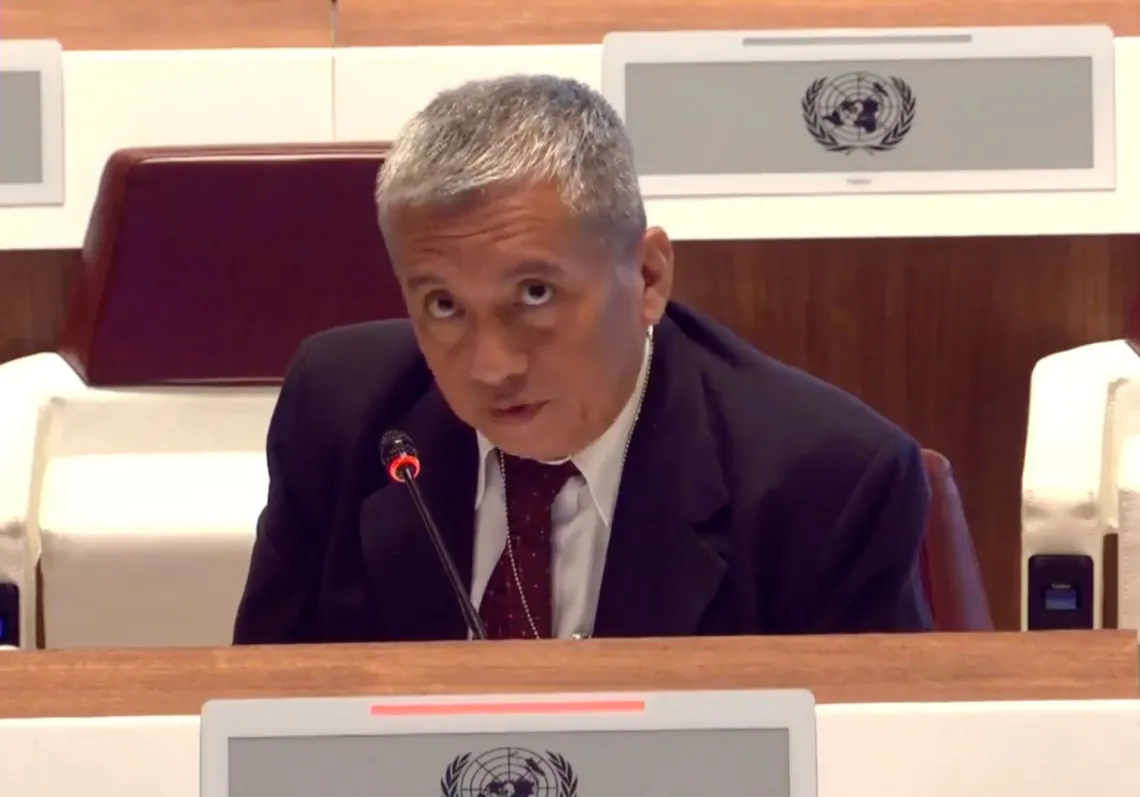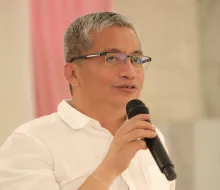Suhas Chakma Advocate for Indigenous Rights at EMRIP


Geneva, Switzerland - In a significant display of advocacy for Indigenous rights, Suhas Chakma, Campaign Manager for the Asia Region with the Indigenous Peoples Law & Policy Program (IPLP) Initiative on Indigenous Peoples Affected by Protected Areas and Other Conservation Measures, and Melanie Clerc, Research Scholar with the IPLP from the University of Arizona, made impactful interventions at the 17th Session of the Expert Mechanism on the Rights of Indigenous Peoples (EMRIP).
3rd Meeting, 17th Session: Country Engagement
During the third meeting of the session, held under Item 6: Country Engagement, Chakma and Clerc presented critical insights on the challenges faced by Indigenous communities in Asia and Africa. They emphasized the urgent need for Member States to honor their commitments under the United Nations Declaration on the Rights of Indigenous Peoples (UNDRIP). Their intervention highlighted the adverse effects of conservation measures on Indigenous populations, stressing the necessity for policies that respect Indigenous land rights and livelihoods.
Chakma underscored the displacement and marginalization that often accompany protected area initiatives, urging for a more inclusive approach that integrates Indigenous knowledge and practices. Clerc echoed these sentiments, advocating for stronger legal frameworks to safeguard Indigenous rights and promoting collaborative efforts between governments and Indigenous communities.
4th Meeting, 17th Session: Interactive Dialogue
At the fourth meeting, focused on Item 5: United Nations Declaration on the Rights of Indigenous Peoples, Chakma and Clerc participated in an interactive dialogue with key UN bodies, including the UN Permanent Forum on Indigenous Issues (UNPFII), the Special Rapporteur on the Rights of Indigenous Peoples, and the UN Voluntary Fund for Indigenous Peoples.
Their intervention called for a more robust implementation of UNDRIP, highlighting the discrepancies between policy and practice in many countries. Chakma pointed out specific cases where conservation projects have led to human rights violations against Indigenous peoples, calling for accountability and reparations.
The interventions by Chakma and Clerc at the 17th Session of EMRIP have drawn attention to the critical intersection of conservation efforts and Indigenous rights, advocating for a balanced approach that prioritizes human rights and ecological sustainability. Their contributions are expected to influence future policy directions and enhance the protection of Indigenous communities globally.
About EMRIP
The Expert Mechanism on the Rights of Indigenous Peoples (EMRIP) provides the Human Rights Council with expertise and advice on the rights of Indigenous peoples and assists Member States in achieving the goals of UNDRIP. The 17th session continues to be a vital platform for addressing the challenges and advancing the rights of Indigenous peoples worldwide.

